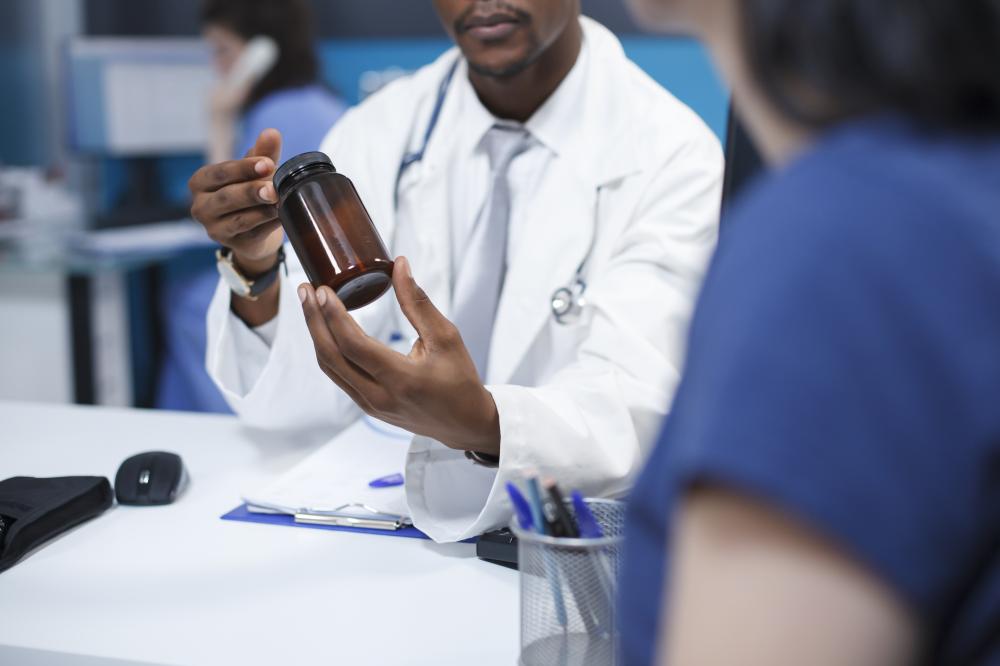Personalized Treatment Plans
At the heart of Minnesota Recovery’s approach is its focus on creating personalized treatment plans. This individualized care ensures each person receives the specific support they need, addressing their unique circumstances. A diverse team of licensed therapists, psychiatrists, and addiction specialists collaborate to design these plans. Together, they offer a comprehensive range of services tailored to meet the diverse needs of patients.
The emphasis on personalized care extends beyond just treating the addiction. Minnesota Recovery understands that recovery is a holistic journey, involving mental, physical, and emotional healing. The care team works closely with patients to develop strategies that promote long-lasting recovery and well-being.
Comprehensive Clinical Services
Minnesota Recovery offers a variety of evidence-based clinical services that support recovery. Cognitive Behavioral Therapy (CBT) and Dialectical Behavioral Therapy (DBT) form the backbone of the treatment strategies. These therapies help individuals understand and change destructive thought patterns, facilitating healthier behavior and coping mechanisms.
Group therapy sessions provide a platform for patients to share experiences and build a sense of community. Individual therapy allows for more personalized interventions, addressing specific issues related to addiction and mental health. Moreover, family support services are available to help loved ones become active participants in the recovery process, fostering a support system that extends beyond the facility’s walls.
Medication management is another crucial component of the treatment plan. Tailored to each individual’s needs, it can significantly enhance the effectiveness of therapy by alleviating withdrawal symptoms and stabilizing mental health conditions.
A Holistic Approach to Healing
Recognizing that recovery involves more than just overcoming substance use, Minnesota Recovery adopts a holistic approach to healing. This philosophy encompasses mind, body, and spirit, ensuring a more rounded recovery process. Nutrition and physical activity are emphasized as vital components of treatment, promoting general well-being and resilience.
Therapies such as yoga and meditation are integrated into the programs, offering tools for stress management and relaxation. These activities help patients reconnect with their inner selves, fostering a sense of peace and clarity essential for sustainable recovery.
The holistic approach also includes art and music therapy. These creative outlets provide patients with a means to express emotions and experiences that might be difficult to articulate in words, aiding in the emotional healing process.
Building a Supportive Community
A sense of belonging and support is crucial for recovery, and Minnesota Recovery excels in fostering a nurturing community. Patients are encouraged to share their journeys, creating connections that help combat the isolation often accompanying addiction. This supportive environment helps reinforce the understanding that patients are not alone in their struggles.
Staff members are trained to provide compassionate care, ensuring that the atmosphere remains non-judgmental and inclusive. This enables patients to express themselves freely and honestly, facilitating more effective treatment and personal growth.
The Role of Family in Recovery
Family support is a critical element in the recovery process at Minnesota Recovery. Recognizing the impact of addiction on loved ones, the facility offers programs that involve family members in treatment. These programs are designed to educate families about addiction and provide them with tools to support their loved ones effectively.
Through family therapy sessions, participants have the opportunity to repair strained relationships and establish stronger communication channels. This not only aids the patient’s recovery but also helps the family unit heal and grow together.
Addressing Dual Diagnosis
Many patients with substance use disorders also struggle with mental health conditions, a scenario known as dual diagnosis. Minnesota Recovery is equipped to handle these complex cases, offering integrated treatment plans that address both the addiction and the underlying mental health issues. This dual approach is crucial for achieving long-term recovery.
By addressing mental health conditions alongside addiction, the facility helps patients better understand and manage their triggers. This comprehensive care model ensures that patients receive the support they need to rebuild their lives on solid foundations.
Navigating the Detoxification Process
Detoxification is often the first step in addiction treatment, and it can be challenging. Minnesota Recovery provides medically supervised detox programs to ensure safety and comfort during this critical phase. The medical team closely monitors patients, managing withdrawal symptoms and minimizing discomfort.
Patients are prepared for the next stages of treatment during detox, with the transition to residential or outpatient care smoothly facilitated. This continuity of care is integral to maintaining the momentum of recovery and preventing relapse.
Insurance and Financial Options
Understanding the financial challenges that can accompany addiction treatment, Minnesota Recovery strives to make its services accessible to all. The facility accepts most major insurance providers, reducing the financial burden on patients and their families. Their Minnesota addiction treatment center works closely with insurance companies to maximize coverage, ensuring that patients can focus on their recovery journey.
For those without insurance, financial counselors are available to discuss payment plans or explore other potential funding sources. This commitment to financial transparency and support exemplifies Minnesota Recovery’s dedication to removing barriers to treatment.
Frequently Asked Questions
What is a typical day like at Minnesota Recovery?
A typical day at the center involves a structured schedule that includes therapy sessions, group activities, and personal reflection time. Patients participate in various therapeutic exercises designed to foster healing and growth.
How long does detox take?
The length of detox varies depending on the substance involved and the individual’s physical health. On average, the process can last from a few days to over a week, with medical staff providing support throughout.
What should I bring to treatment?
Patients are encouraged to bring personal items such as comfortable clothing, toiletries, and a journal for reflection. Electronics are generally discouraged to help patients focus on their recovery journey.
Testimonials and Success Stories
Patients and their families often commend Minnesota Recovery for its compassionate care and effective treatment programs. Testimonials highlight the personal growth and healing experienced by individuals who have participated in the center’s programs. Many appreciate the holistic approach that addresses not just the addiction, but also the emotional and psychological aspects of their struggles.
The sense of community and the genuine care provided by the staff are frequently highlighted in success stories. These narratives underscore the impact of personalized treatment plans and the supportive environment fostered at Minnesota Recovery, inspiring hope for those beginning their journey to recovery.

How much does rehab cost in Minnesota?
The cost of rehabilitation in Minnesota can vary depending on several factors, including the type of treatment, the duration of the program, and the specific services provided. At Minnesota Recovery, we strive to make our comprehensive treatment options accessible, working closely with insurance providers to maximize coverage. This collaboration helps to alleviate financial concerns and allows patients to focus fully on their recovery journey. For those without insurance, our financial counselors are ready to explore alternative payment plans. If you’re considering rehabilitation, a detailed consultation can provide you with a personalized cost estimate tailored to your circumstances.
What is the Minnesota alternative model of addiction treatment?
Minnesota is known for the “Minnesota Model” of addiction treatment, which emphasizes a holistic and integrated approach. At Minnesota Recovery, we implement this model by combining evidence-based clinical interventions with holistic therapeutic practices. This approach addresses not just the physical aspects of addiction but also the mental and emotional facets, ensuring comprehensive healing. For example, alongside traditional therapies like CBT and DBT, we incorporate activities such as yoga and meditation to promote overall well-being. This model’s success lies in its adaptability, allowing us to tailor treatment plans to each individual’s unique needs.
How to treat someone who just got out of rehab?
Supporting someone who has recently completed rehab involves a balance of empathy, understanding, and encouragement. At Minnesota Recovery, we encourage family members and friends to remain patient and open-minded, recognizing that recovery is an ongoing process. It’s important to create a supportive environment that reinforces positive behaviors while acknowledging the challenges that come with reintegration into daily life. Providing encouragement for continued therapy and participation in support groups can also be beneficial. Open communication is key–ask them how you can best support them and be willing to listen.
What to say to someone coming out of rehab?
When someone is coming out of rehab, the words you choose can have a profound impact. It’s essential to offer them encouragement and affirm your belief in their ability to maintain their recovery. At Minnesota Recovery, we recommend expressing your pride in their commitment and willingness to face the challenges of addiction. Statements like “I’m proud of you for taking this step” or “How can I support you?” can be incredibly powerful. Remember that everyone’s journey is unique, so being an understanding and steady presence can help facilitate their transition back into everyday life.
Are insurance-covered treatment options available?
Yes, at Minnesota Recovery, we understand the importance of accessibility in addiction treatment. We accept most major insurance providers, which helps to reduce the financial burden on individuals seeking help. By collaborating directly with insurance companies, we ensure that patients receive the maximum possible coverage for their treatment plans. Our team is equipped to provide guidance on navigating insurance paperwork and can discuss additional financial options if needed. This commitment reflects our dedication to removing barriers to recovery and ensuring that everyone has the opportunity to seek effective treatment.
What is the impact of holistic therapy on addiction recovery?
Holistic therapy plays a significant role in addiction recovery by addressing the interconnectedness of the mind, body, and spirit. At Minnesota Recovery, our holistic approach includes activities like yoga, meditation, art, and music therapy. These therapies provide patients with the tools to manage stress, express emotions, and achieve a balanced state of mental well-being. For instance, meditation can help individuals cultivate mindfulness, which is crucial for recognizing and managing triggers. The comprehensive healing that results from holistic therapy not only enhances recovery outcomes but also promotes long-term resilience. If you’re curious about how holistic practices could benefit you or a loved one, consider reaching out to learn more about our programs.
Resources
- Substance Abuse and Mental Health Services Administration (SAMHSA) – Treatment Locator – Find treatment facilities near you and learn more about different treatment options for substance abuse and mental health disorders.
- National Institute on Drug Abuse (NIDA) – Principles of Drug Addiction Treatment: A Research-Based Guide (Third Edition) – Explore resources and research-based information on drug addiction treatment approaches and interventions.
- National Alliance on Mental Illness (NAMI) – Learn about mental health conditions, find support for individuals and families, and access resources for mental health treatment and recovery.
- National Institutes of Health (NIH) – Discover a wide range of resources on health topics, research updates, and information on addiction, mental health, and treatment approaches.
- Centers for Disease Control and Prevention (CDC) – Access information on public health, substance abuse, and mental health, including data, research, and resources for prevention and treatment.





